Chives, a delicious member of the onion family are perennial plants that when planted will be at home in your garden for many years to come.
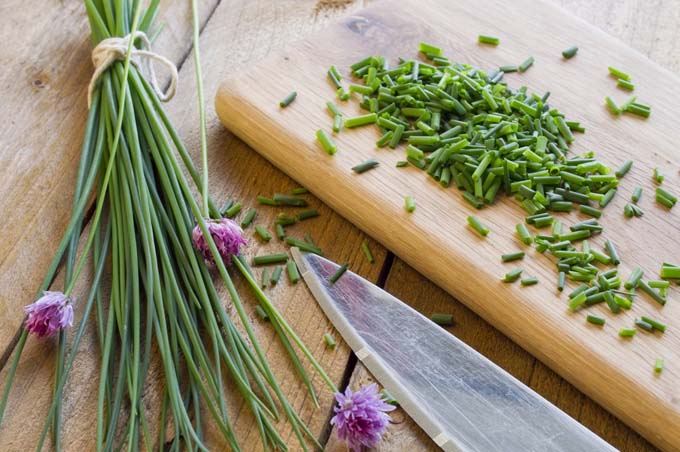
Reaching a height of up to twelve inches at maturity, these clumps of narrow, hollow leaves find themselves adorned by globe shaped, violet flowers during the months of May and June.
They are both a colorful addition to the garden and a scrumptious addition in the kitchen. Furthermore, the health benefits of this herb is staggering.
Historically, the use of chives in cooking are believed to have originated in China and are said to have been brought to Europe by Marco Polo after his his extensive travels through the Middle East and Asia.
Known by many names, chives epithet derives from the Greek language; chive meaning “reed like leek.”
Native to both China and Europe, the plant grows wild across continental landscapes boasting small variations from one area to the next. Gardeners during the Middle Ages used them to build natural borders around flower beds for both decorative and insecticidal purposes.
The common use of this herb in culinary dishes and kitchen gardens isn’t documented until the 1500’s, nor is the plant’s former use as a tool to ward off evil when hung around the house like spring bouquets.
A little over a century ago, the Roma (commonly known as Gypsies) were still using chives for fortune telling. Envision an old woman in a horse drawn cart, drawing the young and innocent toward her with the promise of revealing the future.
Imagine a young woman holding a bunch of chives within her hands, nervously smiling before throwing them onto a wooden table where the ancient soul would prod and study them until she was able to weave predictions based upon exactly where they’d landed.
Today, we value this plant for its many uses in the kitchen and the benefits it provide to our bodies. The tangy, aromatic taste that it is well known for originates in the high concentration of sulfur compounds and other essential oils contained in the stem.
Known to ease stomach complaints, protect the heart against disease, and assist the body in fighting bacteria, this plant may also increase our bodies’ ability to digest fat.
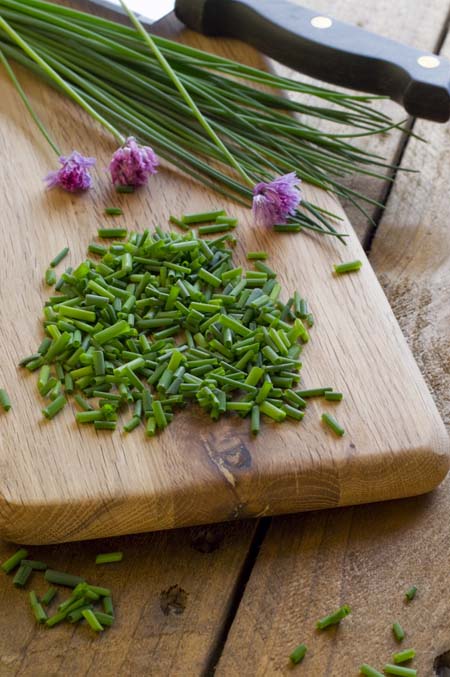
Chives natural components gift us with a variety of essential minerals. The herb contains calcium to strengthen the bones, and large amounts of iron to build up the blood; whereas potassium serves to support the heart.
[the_ad_group id=”1060″]
Also high in vitamin A, vitamin C (three and a half ounces of the herb meets the daily requirement), and folic acid, chives make an invaluable, healthy contribution to any meal.
Popularly used in creams and sauces (particularly potatoes), chives have as many uses as they do health benefits, but there are special steps to keeping those benefits preserved. Easily cultivated in a pot, the live plant should be placed near a sunny window. After your plant reaches about six inches in height, it can be safely cut for use in your favorite recipes.
Keep your plant trimmed, unless of course you plan on using the blooms for decoration in salads, herbal oils, or other dishes. The flowers are safe to eat and have a milder flavor than the leaves, but take care to note that the leaves will lose a certain amount of flavor after the plant flowers.
Chives should always be cut just prior to use, in order to preserve their flavor and protect their vitamin content. Heating them up will strip them of their vitamin C and digestive properties, so when adding them to a warm dish, delicately sprinkle them on top after cooking. Never cut them until you’re ready to use them. Cutting too soon will cause the loss of vitamins, flavor, and aroma.
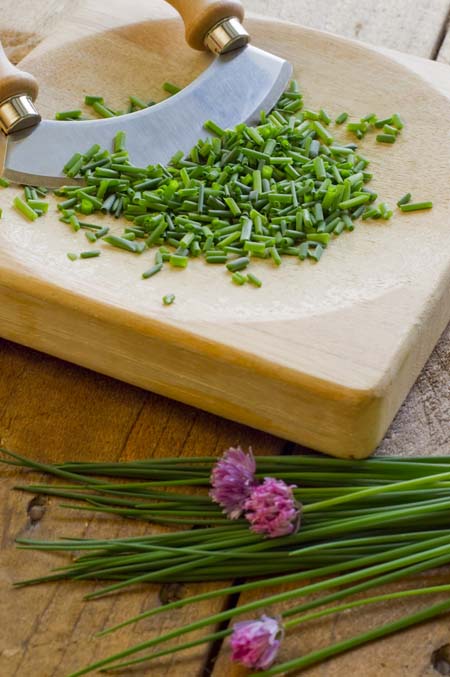
If you prefer to keep chives readily at hand, freezing them is an excellent option. Snip them into very small pieces using kitchen shears and place them into an ice cube tray. Fill your tray with water and freeze accordingly, and when you’re ready to use them simply thaw the cubes in a strainer.
Chives may also be dried, but dried chives will not retain their full flavor. Fresh or frozen products are recommended, but if you’re willing to sacrifice taste in a pinch, dried varieties will suffice.
Far more than a simple garnish, chives are valued for that extra bit of zest they add to everyday recipes. Mix them with goat cheese or blend into butter, both delicious and easily prepared toast toppers.
Sprinkle them into an omelet for extra flavor, shower your favorite stew with seasoning, or spice up a favorite cream sauce. The possibilities are endless and the benefits…… well worth the sprinkle.
Whether you choose to grow chives on your own or purchase them at the market, fresh examples produce the most flavor in your recipes and health benefits for your body. None-the-less, dried products can be purchased at your local grocery store and have a long shelf life. Either way…….. enjoy!
Looking for more herb and spice advice? Be sure to check out Foodal’s complete guide now!

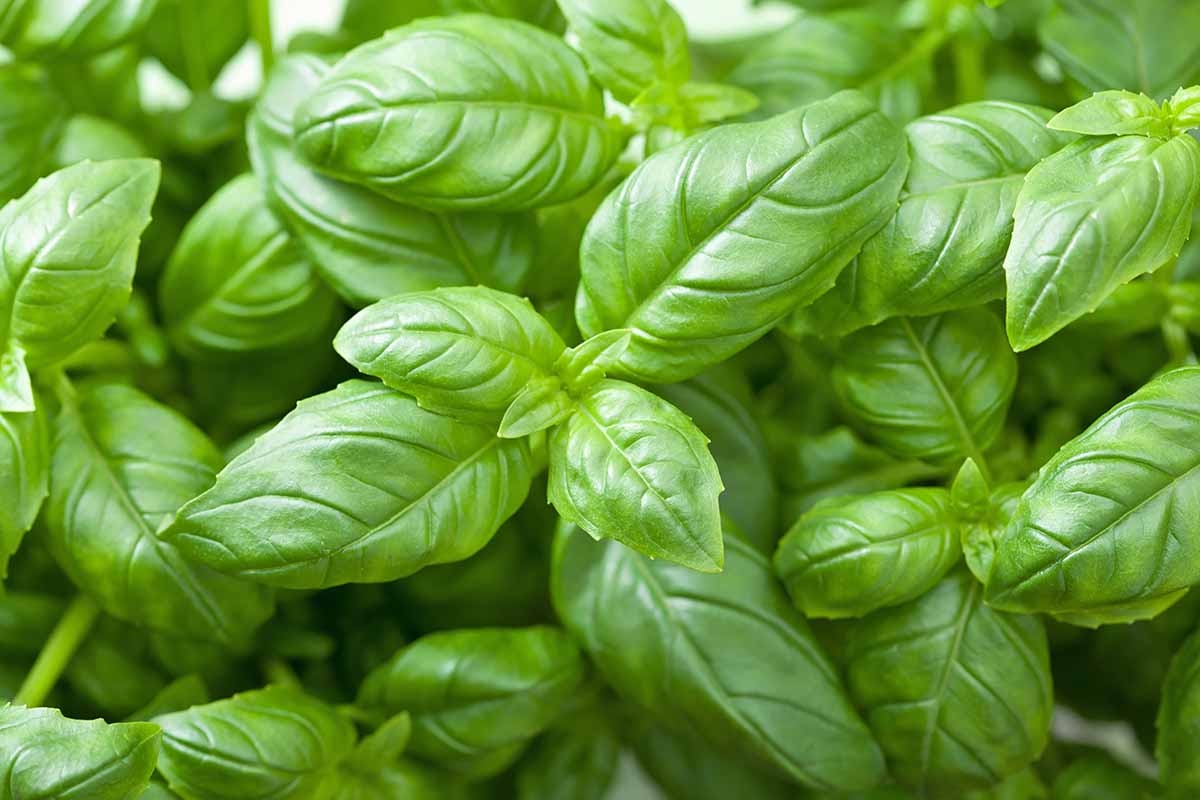
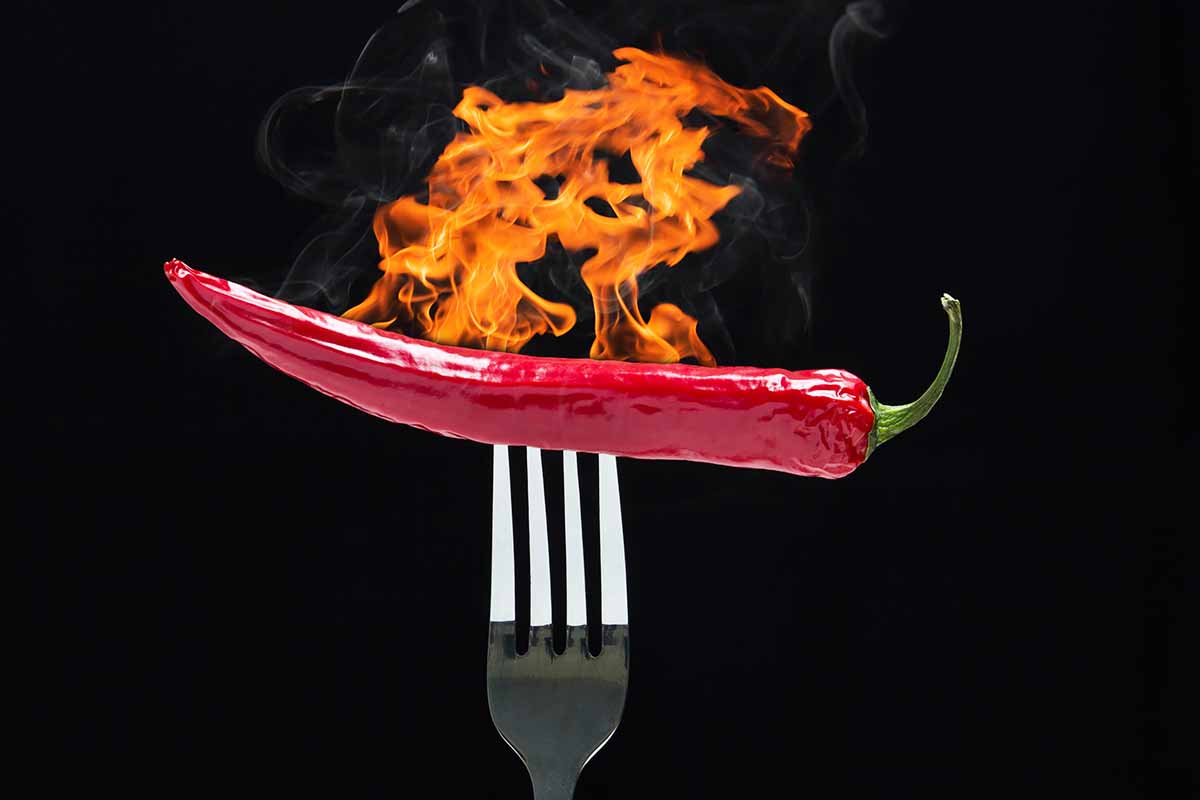
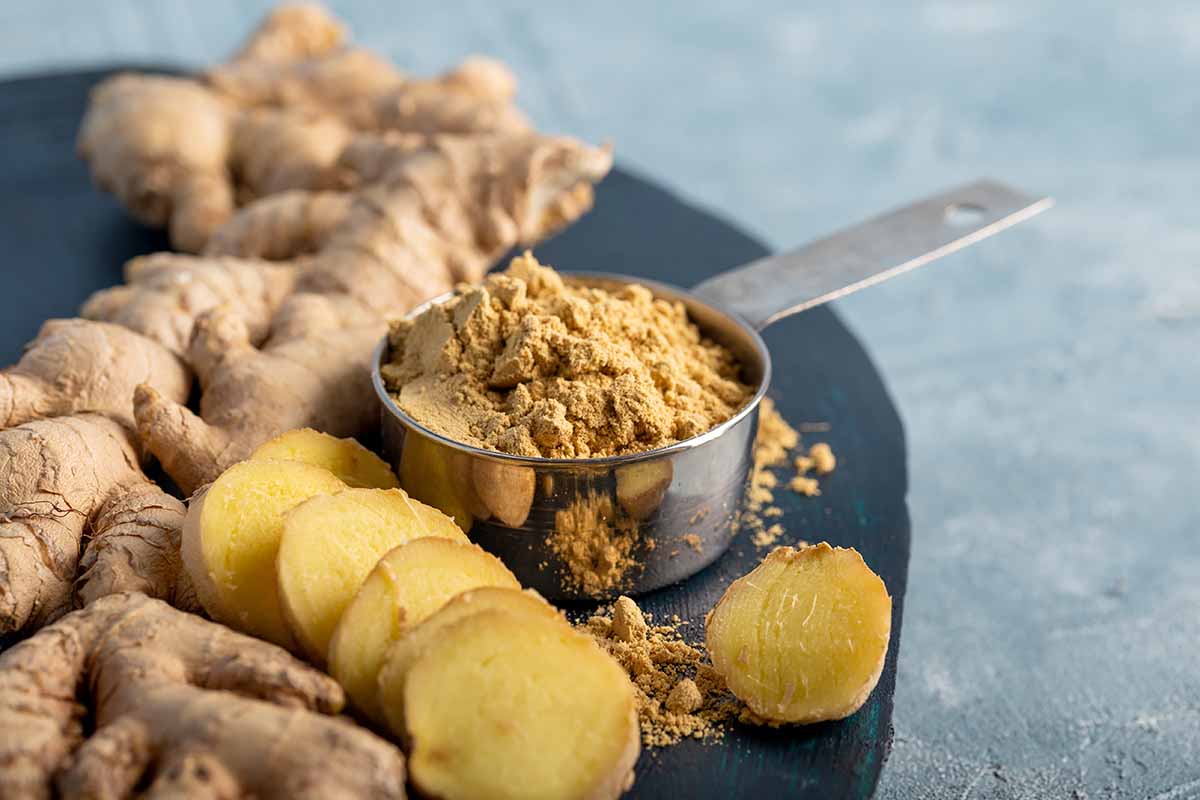
Thanks for the article!
From what I know chives are a centerpiece of Chinese cooking, it is a very popular alternative to spring onion and is often incorporated into noodles and dumplings. It gives a very unique, fresh and earthy flavor that is a perfect complement to many Asian sauces and dishes!
I personally would recommend fresh chives over dried ones any day. The best way to get fresh chives is to plant them yourself! They don’t require that much attention and are quite hardy.
Cheddar- I couldn’t agree more. I keep chives readily available in my indoor garden and far prefer fresh to dried. Unfortunately, chives are one of the plants I have a bit of difficulty keeping alive….. any ideas?
As someone who always likes to prepare things well in advance, I didn’t know cutting chives too early would make them lose their vitamin potential. I do enjoy them and now I know they are really healthy will use them more.
I’m always looking for healthy omelet options so a chive and mushroom or corn one is an alternative as I usually always add onions.
Bella- That omelet sounds scrumptious! Is it time for breakfast?
Thanks for the very informative article! I use chives almost every time I make scalloped potatoes and it looks like they’re as nutritious as they are delicious! I’m going to start to add it to even more dishes now that I know how many benefits there actually are! My kids hate milk so I’m always looking for any source of Calcium that I can find.
mimsee- Chives are the reason scalloped potatoes are so delicious. Thank you for commenting!
Chives also grow really fast in a glass of water. Just put the white part in a glass of water, and the chives will regrow. I use chives in salads. One of my favorites is a bean salad with tuna fish and dressed with lemon and chives. I also use chives to make a vinaigrette. It’s good to know that something that I use so frequently has so many health benefits.
That’s a really interesting tip, I’ve got to try that out sometime. Thanks! How often should I change the water, and should I grow the chives indoors, or do they require lots of sunlight?
Nids- I cannot reply to your post above, so I’ll join Cheddar’s thread. I always have problems keeping my chives healthy in their window pot….. I’m going to try this right away. Thank you so much for the advice. I keep ivy of all kinds in vases of water all over my home…… stays alive forever. This is a new idea and much appreciated.
Very nice article, and really well-written. We use chives a lot because they grow in our garden year round here. I had no idea about the health benefits of them though.
ally79- Thank you for the compliment, I’m glad you enjoyed the article. I have chives in my yard as well, but they don’t hold up through the winter months. None-the-less, they’re the first thing to pop in the spring. 😉
I love the flavor of chives. I don’t keep them around that often but I should. I didn’t know you could freeze them. I didn’t know they had such minerals and nutrients inside. They pack a punch for how small they are.
meteredlines- You’ve got that right! Thank you for both reading and commenting! 😀
The nutritional information provided on chives is rather new to me. I had no idea that it brought that level of care to our health as a whole. I mean being able to ease stomach disruptions, protect the heart from disease and help our bodies fight plaguing bacteria and digest fat is great to hear. It also sounds like something perfect for some of those battling weight issues or want to avoid it. Great information here. The back story on chives is very interesting as well.
TPhoenix- You’ve got that right…… delicious and healthy. Chive butter is a part of every Christmas dinner….. you might want to try it!
Wow, I never knew all the health benefits. That’s wonderful, especially since I love cooking with chives. It adds that extra spice that just completes many dishes.
As for my what I love cooking with it… baked potatoes, fish, lentils, eggs, chicken, mixed veggies.
springbreeze- Chives are a beautiful addition to all of the above! I think I’m getting hungry! 😉
The great thing about chives is how easy they are to grow in the garden. I always have fresh chives stocked up in the kitchen. I’ve always known they were flavorful and healthy, but I didn’t realize it also provided calcium. That was an informative post.
buttercup- Thank you for reading and commenting. It’s great to know the article provided you with some new information…. and positive information at that! 😉
Very interesting presentation. I enjoyed reading about the historical background before discovering the many properties of chives, beside tasting good and being good deco! However, I do wonder how much of it would be necessary to reap the benefits you speak of. It seems like it would be having many healthy bonuses, but at the amount I usually use, I doubt I’d see any difference.
Crayonelle,
The old saying “you are what you eat” definitely applies to your comment! It’s all about changing the way we eat and utilizing the goodness found in the “good for you” foods around us.
I love making chives and scrambled eggs. They just taste so good together. I also like mixing it into pancakes, cream cheese, muffins and so many other things! The taste of it is great and not as slimy or strong as green onions or regular onions. I didn’t know that it was high in vitamin c though! That’s good to know!
Jen- I think you’re off to a great start! I admit, I’ve never added chives to pancakes…. As for onions, I’m with you….. a great replacement for onions! Thanks for stopping by and leaving your comments!
I’m glad you mentioned that heating the herb can steal nutrients. It’s always surprising to me how many people are unaware of that. I’ve always enjoyed the decorative aspects of chive. It adds the flavour & a pinch of beauty to a dish.
Joan- My grandmother was always a stickler about how she heated and prepared vegetables, as nutrition loss was a worry even for her. Over the years, I’ve come to find that many of her own little tricks to seal in nutrition actually didn’t work. None-the-less, I would never had corrected her had I known…. We on the other hand need to always remember, most of our herbs shouldn’t be added to the dish until the last possible moment! Heat destroys their goodness and flavor! Thank you for commenting!
I haven’t used chives nearly as much as I apparently should. I have trouble digesting many forms of onion, but chives are one that I can tolerate, and that I enjoy. I mainly use them on top of baked potatoes, but after reading the health benefits mentioned in the article, I think I will use them more, and possibly try growing some. I love the idea of using the flowers in salads.
Diane- Chives are the one herb in my garden that thrive with little or no tender loving care! I love their delicate taste…. never overwhelming. Not-to-mention, the flowers make a beautiful addition to any salad while they’re blooming. Good luck with the planting…. I’m loving spring! 😀
I had no idea chives were so good for you!
We’ve always pretty much treated them like weeds here. They grow like crazy in our garden, and while we do use them we always have far more than we know what to do with. I should really put in more effort to use up some chive leaves in cooking.
I adore the flowers, by the way, such a pretty colour and shape. As a toddler I used to pick them out of my mothers garden and use the flowers as flags on the castles I built in the sand pit.
Every time I hear the word chives I think fondly about my childhood. We used to walk to the park every week when I was 6 and my older sister and I would always see this patch off tall grass off the side of the benches. One day I asked mom what they were and after a couple of minutes of examination she replied with “chives”. I asked her what chives were and she told me and my sister to pick a bunch and we would take them home. When we got home she chopped them up and made a salad with them. Since then I’ve always loved them. They’re not quite as oniony as scallions but they impart just enough kick to make them delicious. Learning the history of them makes them appeal even more to me.
I will admit I love chives on my baked potatoes and pretty much that is where it ends. Was not aware of all the nutrition you can gain from eating something that reminds me of a blade of grass. Who would have known.
Wow, I didnt realize they had that many benefits! Thats awesome! We always add chives to our sour cream, as its something my mother always did. We go through a container of sour cream every other day, so I would say we probably eat more Chives than the average person! lol
Chives are amazing for salads, they’re always good as a substitute for green onion (the “tulip” type). I didn’t even know they had so many vitamins, I should really start using them more in my meals but they’re really hard to come by in my area.
We have an abundance of chives so I often use them in lieu of onions in recipes. My question is, do they lose nutritional value when cooked?
Cooking will of course degrade heat-sensitive nutrients in all foods to some degree, such as vitamin C. When cooking with chives, adding them just before serving is typically recommended, and this is the best way to allow their flavor to really shine.